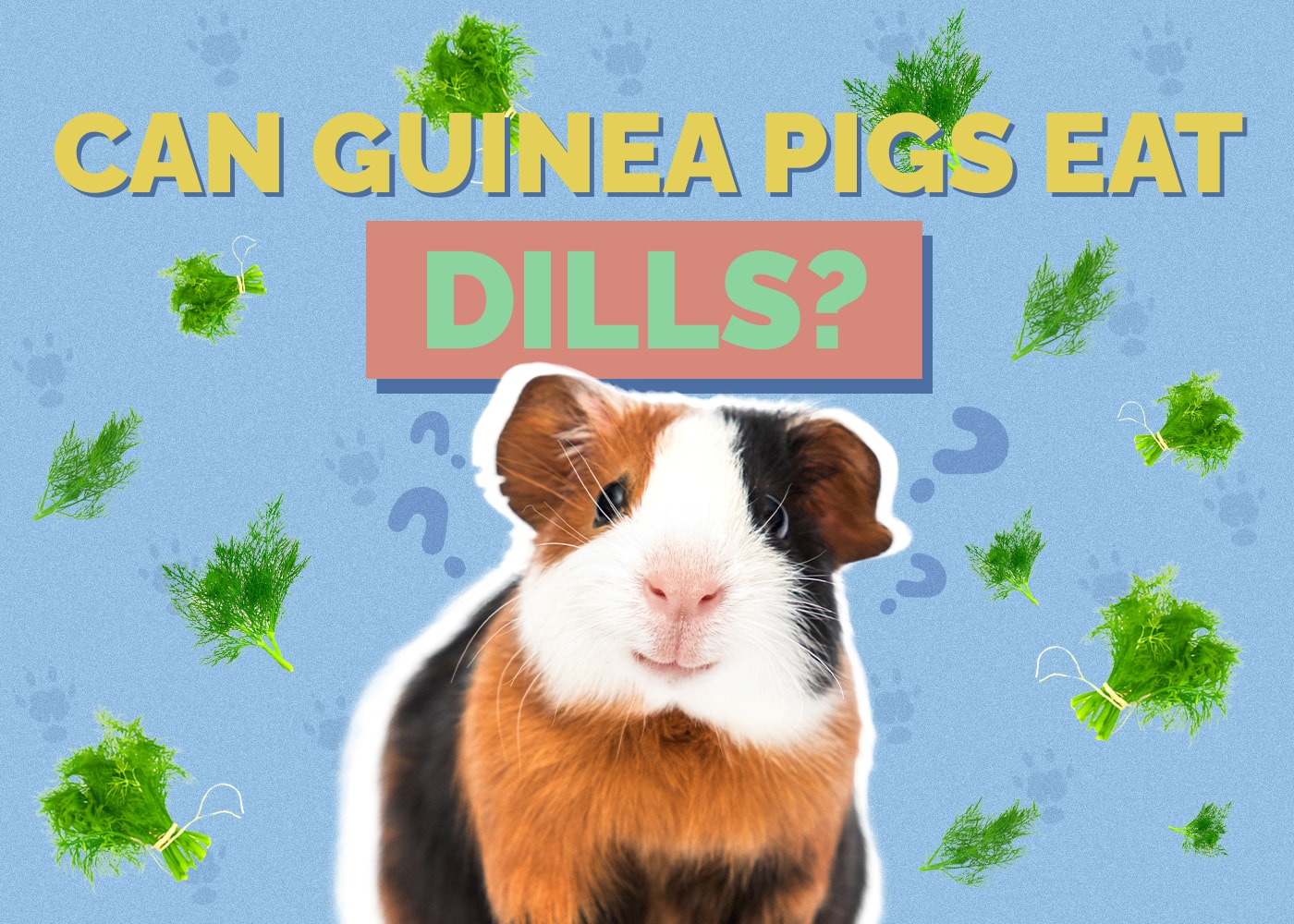How Long Do Guinea Pigs Live? Vet-Reviewed Lifespan, Data & Care

Updated on
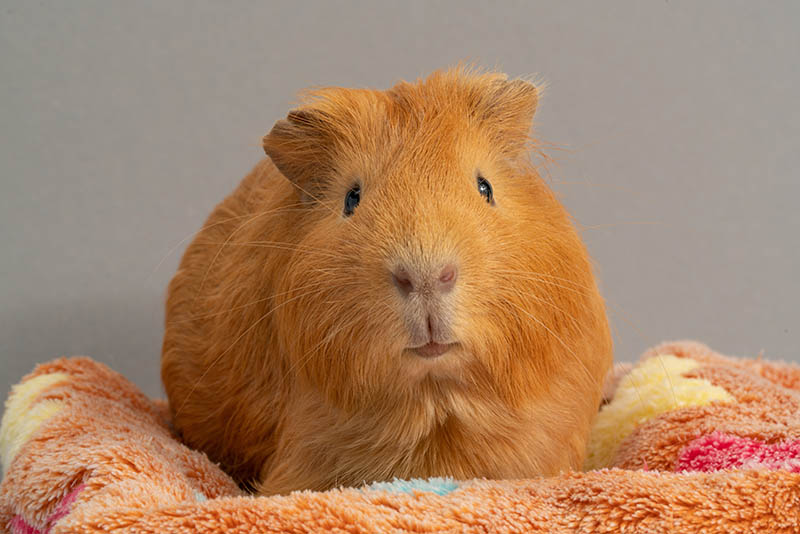
Click to Skip Ahead
Guinea pigs, also known as cavies, make great pets. However, you need to remember that these pets work better in pairs if you want your Guinea to live to a ripe-old Guinea pig age.
These animals make good pets for any family and are the perfect size for children. Many pet owners wonder what the average lifespan of a Guinea pig is and the answer is between 6 and 8 years. Let’s discuss in more detail the average lifespan and much more in the guide below, so join us.
What’s the Average Lifespan of a Guinea Pig?
The average lifespan of a Guinea pig is between 6 and 8 years. However, some cavies have lived for much longer. In fact, the Guinness Book of World Records puts the oldest Guinea pig at almost 15 years old. Genetics plays a very strong role in the lifespan of a Guinea, but there are other things that you can control and do to help your Guinea live a nice long life. We’ll discuss the reasons that some cavies live longer than others below.
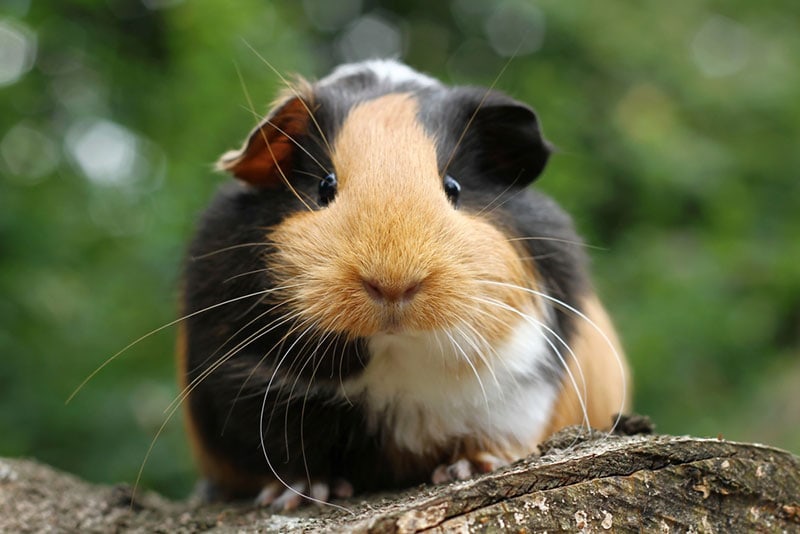
Why Do Some Guinea Pigs Live Longer Than Others?
From establishing ideal living conditions to frequent checkups, there are a few ways that you can help ensure your Guinea is one of them.
1. Living Conditions
While Guineas live in their cages most of the time, you want the Guinea to be comfortable and the cage to be clean. Your cavy’s environment can determine how long they live.
Not only is a clean, dry cage important, but you also need to make sure it’s a secure, durable hutch, especially if you have dogs or cats in your home. Make sure you purchase the right size cage for your pet, as a cavy needs room to move around. A cage that’s 30” x 36” is the minimum size you need.
2. Materials for Teeth Grinding
While you’ve probably never seen a Guinea Pig in the wild, you might see one chewing on plants and other materials if you did. That is because the cavy is grinding down their teeth, and your Guinea needs to be able to do the same thing. Provide your pet with good-quality hay at all times, so they can keep their teeth in working shape. If your Guinea’s teeth get bad, they will have a hard time eating, which could lead to them starving to death.

3. Nutrition
A Guinea in the wild eats veggies, hay, grass, and certain fruits if they come across them. These nutrients are essential if you want your pet to live for a long time. While you need to provide the Guinea with pellets to keep them healthy, it’s important to give them other foods as well.
- Carrots (in moderation)
- Broccoli (in moderation)
- Peas
- Tomatoes
- Bell peppers
- Kale
- Spinach (in moderation)
- Romaine lettuce
Guinea Pigs are unable to make their own vitamin C and need to get it from their food. It’s vital to offer them foods with vitamin C on a daily basis to ensure their welfare.
- Meat
- Chocolate
- Garlic
- Potatoes
- Seeds
- Mushrooms
- Nuts
- Dairy products
- Avocados
4. Bedding
You already know that you need a secure, comfortable cage for your Guinea, but you also need the proper bedding. You want absorbent bedding, so your Guineas stay comfortable and dry. Make sure that you change out their bedding and clean their cage regularly. If your Guinea’s bedding is wet, it can create the ideal environment for parasites, fungi, and bacteria.
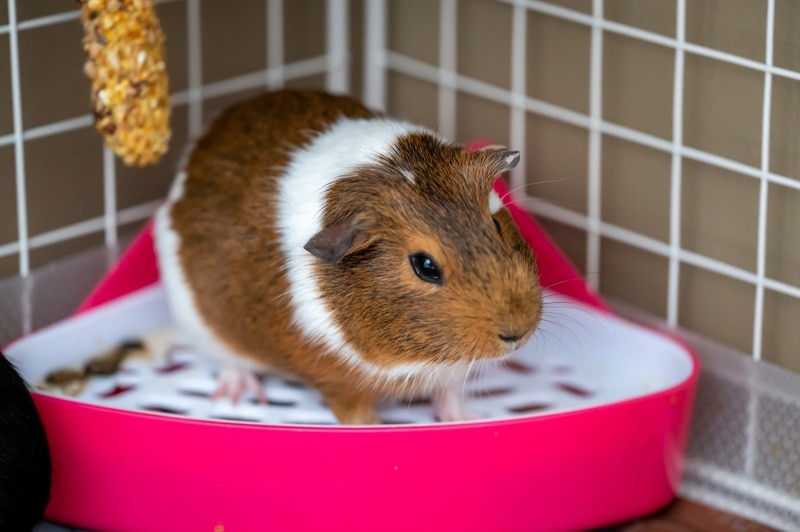
5. Companionship
Guinea pigs are social animals, and you do need to spend time with them. It’s also best to adopt two cavies instead of one so that they can socialize. Just make sure to put plenty of hideaways in the large cage, so they can be alone when they need to be. In certain countries, it may be against the law to house Guinea Pigs alone.
6. Frequent Checkups
The final way to help your Guinea live to a ripe old age is to take the cavy in for frequent checkups with your vet. As with any other pet, regular checkups can help you catch problems before they become severe.
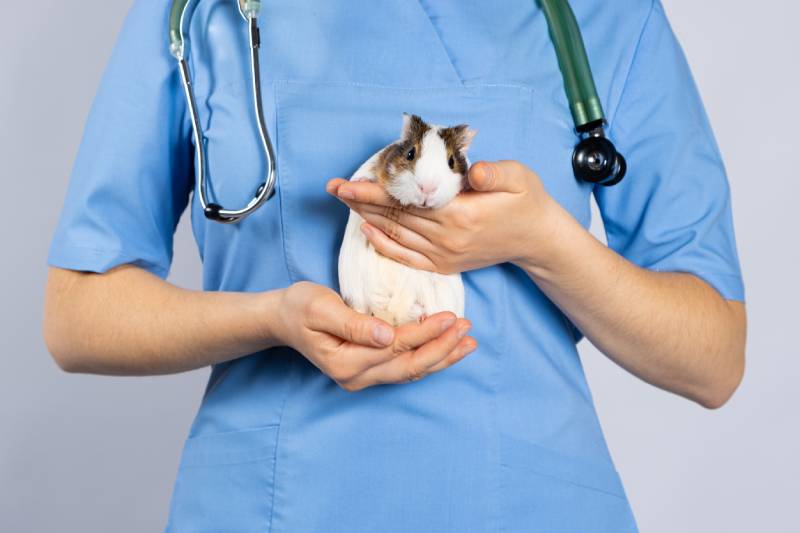
The 4 Life Stages of a Guinea Pig
Guinea pigs go through life stages just as we do. Those stages are infancy, adolescence, adulthood, and senior.
1. Infancy

A Guinea will weigh 3 to 3.5 ounces at birth and be born with their eyes already open. They’ll start to eat solid foods between the first 2 to 3 weeks.
2. Adolescence
Adolescence for cavies begins between 3 and 4 weeks of age, when they start to wean from their mother. This is also when they become independent, trying different foods and learning to groom themselves. You should start to see changes in behavior in the animal.
3. Adulthood
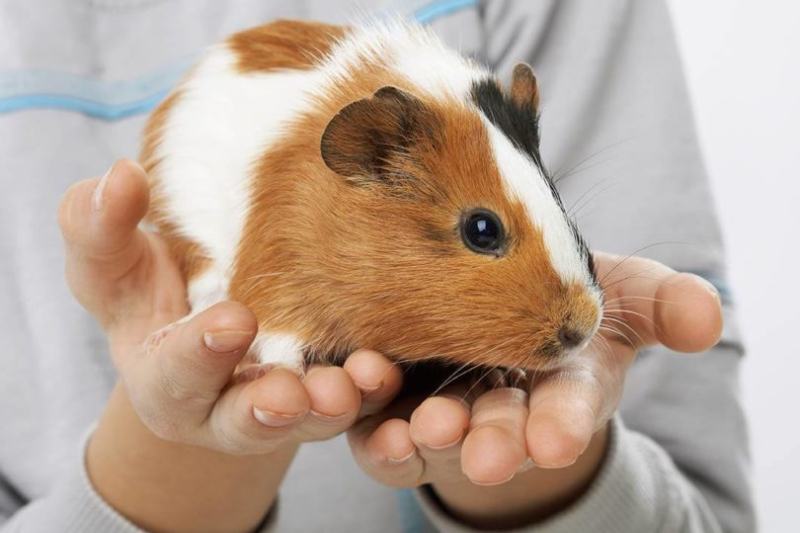
Your Guinea is only considered to be an adolescent for 3 to 4 months; then, it enters full-grown adulthood. This is between 5 and 6 months of age, and the Guinea will have reached its full size by then.
4. Senior
Once your pet is 5 years old, its coat will likely start to thin out, and you’ll begin to see signs of aging. You should talk to your vet about the options you have for your Guinea reaching old age, as diet changes may be required.
How to Tell Your Guinea Pig’s Age
The best way to determine your Guinea pig’s age is to take the pet to your vet. The vet will do tests to determine how old your pet is and if it’s healthy.
Conclusion
Guinea pigs make great pets, but just as with any pet, how long they live is going to depend on the care they receive. For example, if your Guinea is lonely, not fed well, and is in a cramped cage that is constantly damp, you can’t expect your Guinea to live a long life.
However, if you can give your cavies the care and love they need, they will make you and your family wonderful pets for many years to come, and what could be better?
Featured Image Credit: Teofil Mocan, Shutterstock





